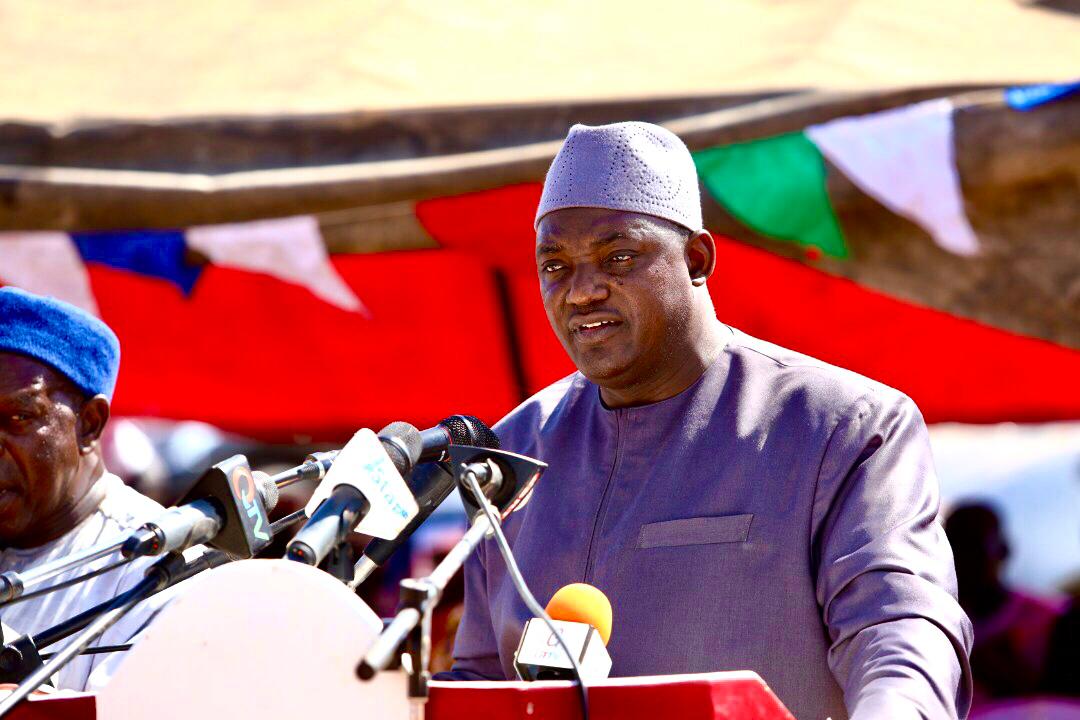By: Sandally Sawo
The Minister of Finance and Economic Affairs, Seedy Keita, has said the Gambia’s economy is expected to continue on a recovery trajectory although at a slower pace.
The minister said in his 2024 Budget Speech on Friday that the slow growth in real GDP over the past few years was the consequence of the cascading impacts of the Russia-Ukraine war.
“Real GDP growth is projected at 5.6 percent in 2023, compared to 4.9 percent in 2022 and 5.3 percent in 2021 when recovery from the pandemic was underway. This relatively weak performance results from the spillover effects of the Russia-Ukraine conflict, which has severely dampened growth prospects. Previously optimistic projections have been revised downwards owing to increasing interest rates to counter rising price levels,” he added.
The finance minister said sectors such as agriculture and services are also expected to continue on the path of recovery but on a steady and subdued trajectory, respectively.
“The agriculture sector is expected to continue on a steady path to recovery after the downturn in 2022. Its growth rate is projected to increase to 8.3 percent in 2023, compared to the 3.6 percent growth rate registered in 2022. Growth in the agriculture sector was driven mainly by contributions from the fishing and crop production sub-sectors with 7.3 and 10.1 percent. Contributions from Forestry and Logging are estimated to decline,” Minister Keita revealed.
“The services sector is expected to register a subdued recovery from the combined effects of COVID-19 and the war in Ukraine. Growth is projected at 3.5 percent in 2023, with the tourism and wholesale and retail trade subsectors being the main drivers of the recovery. Tourism is expected to recover from the COVID disruption by 2026 when the arrival of tourists will match pre-COVID arrivals,” he said.
Minister Keita said performance in the industry is expected to recover on the back of strong performance in the electricity and construction subsectors.
“Growth in industry (including construction) is projected at 7.4 percent in 2023, signaling recovery from the combined effects of the pandemic and the Russia-Ukraine war. The Mining and Quarrying subsector is also expected to remain on a decent path fueled by improved supply chain conditions,” he added.
According to him, economic growth will continue to be reinforced by recovery in tourism, strong performance in construction and agriculture as well as robust public and private sector consumption and investments.
He reported an increase in revenue and grants, explaining that the improvement is largely due to a rise in both tax and non-tax revenues.
“Revenue and Grants increased from D15 billion in the first nine months of 2022 to D20 billion in the same period in 2023,” the finance minister said.
He explained that the uptick in tax revenue collection was mainly due to significant reductions in fuel subsidies; a rebound in tourism, cross-border trade, increased enforcement exercises and the successful implementation of ASYCUDA World and an enhanced version of GAMTAXNET in all tax offices.
“Dividend payment from Central Bank of The Gambia also contributed to the significant increase in non-tax revenue,” Minister Keita said.
He stated that total expenditure and net lending increased from D20.5 billion in the first nine months of 2022 to D22.9 billion during the same period in 2023.
“This was due to a 19 percent and a 7 percent increase in capital and current expenditures respectively,” he added.
The finance minister said that due to the increased allowance payments, including allowance payments to diplomatic staff and their movements, personnel emoluments increased from D4 billion to D5.04 billion in the first nine months of 2022.
He reported a slight increase in interest payments during the period under consideration.
“Interest payments amounted to D2.5 billion compared to D2.3 billion a year ago, recording a growth of 8.7 percent. Domestic and external interest payments increased by 8.1 percent and 15 percent, respectively,” he stated.
He said that the overall fiscal deficit, excluding grants improved from D10.2 billion as of endSeptember 2022 to D8.3 billion in the review period in 2023.
“Including grants, the deficit also improved from D5.4 billion in 2022 to D2.7 billion in 2023,” he added. He continued: “Revenue loss due to exemption increased from D2.2 billion in the first nine months of 2022 to D3.09 billion in 2023. This is largely due to duty waivers granted by government for the implementation of ongoing road works, agriculture, energy and education projects.”




